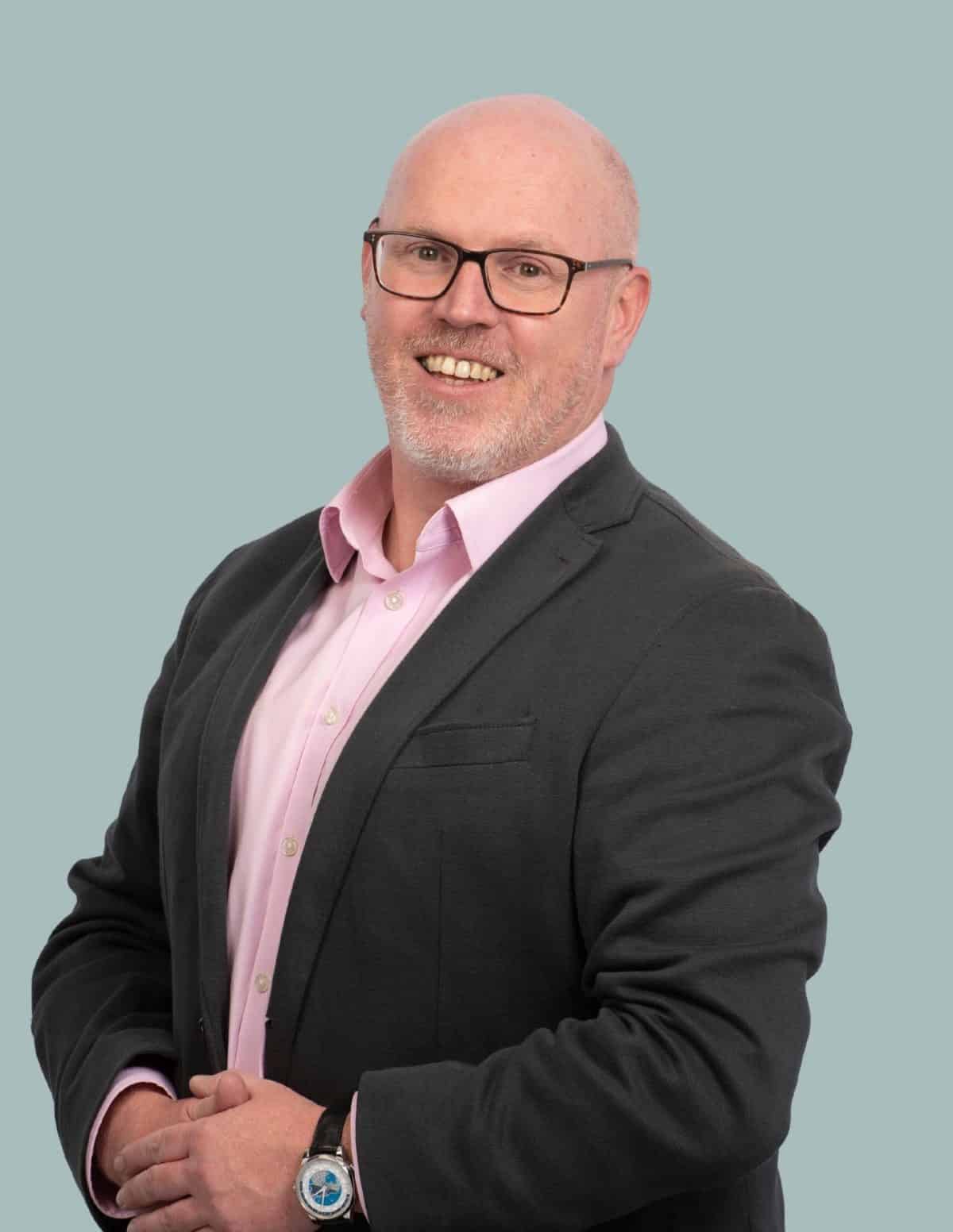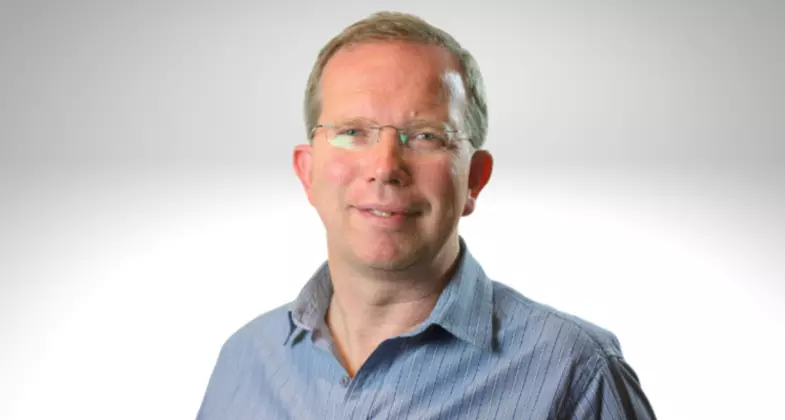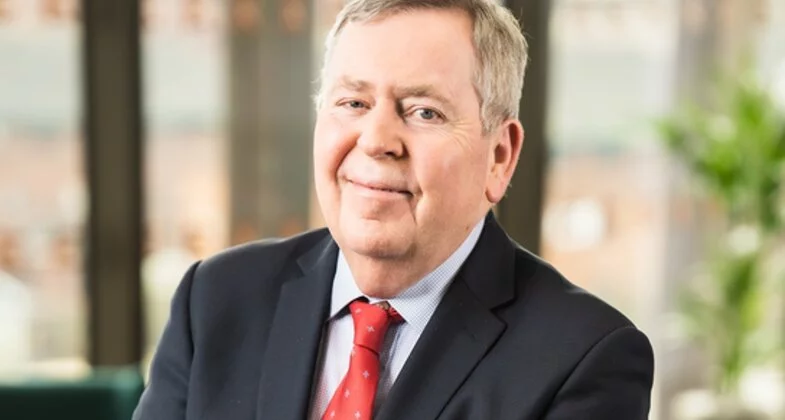Five minutes with…Grant McKelvie, Commercial Business Director of North Coventry Holdings
At a time when many local authorities are considering how they might look to secure additional sources of income, it is fair to say that Coventry City Council has been burning quite a trail in this direction. The Council’s name comes up right across the UK as an example of an organisation that has adopted an innovative approach to thinking and acting commercially, whilst still delivering social value. Marek Dobrowolski, Associate Partner and Berwick Partners’ Place and Regeneration Lead recently caught up with Grant McKelvie, Commercial Business Director of North Coventry Holdings, a company owned by Coventry City Council, who has been leading and supporting the Council’s work in this area. It was almost three years to the day from a conversation they’d had about a new job opportunity:
Three years ago, we had quite an interesting conversation that started out with me saying, “this may seem odd but please hear me out. I don’t have a job description and there isn’t a role profile, but Coventry City Council want to do something really different and interesting and I think you could shape something that could be exciting for you.”
The job that was painted at the time, as I remember it, was, “we have got various trading services that we think can do more, but we need more experience and focus to deliver.”
We spoke a lot before I joined about the purpose of the job – it’s not about making money or conflicting with our civic purpose; it’s about creating resource from our assets that allows us to invest in services and reduce budget pressures for the long-term benefit of our residents.
It was relatively clear within a short period of time that we needed to strengthen the foundations of the services we wished to grow commercially, in order to allow us to operate in a marketplace both sustainably and commercially. So, much of my first year was actually spent within the Council’s services, coaching and supporting our teams and getting in place the structures, systems and culture necessary to deliver business growth. It meant I had to focus on building personal credibility; understanding their business, the market, the opportunities and risks, and helping to create stable platforms. I reached the end of my first year and I hadn’t really created that much additional income, but what we now had were a number of services that were ready to compete in the marketplace for more commercial contracts.
Can you explain more about North Coventry Holdings? Are you part of the Council and what are you here to do?
In my role I can be relatively agile. Not being a direct employee of the City Council has been really beneficial because in my delivery capacity I don’t report to one Director. I have generally been able to work across the Council; I’m involved in schools, in people services and even in fostering for a while, alongside more common ’commercial’ services and activity such as waste, pest control and acquisitions. I was initially received by the services with quite a degree of scepticism. When I joined, we were coming out of a round of cuts and therefore people often questioned what I was doing and whether I was looking for more cuts. My explanation was simple: if we have to reduce our head count as a result of the activity I’m involved in, then I will have failed. That would mean that we are doing less of something, rather than more. The approach I took was to sit down and listen to people in order to understand them and their services, as well as their aspirations for these areas.
I think that, as a service-orientated organisation, you get very ‘head-down’ in delivering the civic services. But, when you do get somebody in the team who has the breathing space to engage and ask the services what, ideally, they would like to be doing differently, or what they could be doing to achieve more commercially sustainable outcomes, you get a flood of ideas. It’s those conversations that give you the insight to realise where opportunities exist.
Many councils have looked at the commercialisation agenda. When you dig into what they are actually working on, it seems more focused on rationalisation and efficiencies, but your proposition was slightly different. Can you tell us more?
Initially I try to manage the question, ‘what is commercialisation or commercialism?’ If you ask that question to 30 people, you get 30 different answers. The reality of this is that there isn’t a right answer or a wrong answer; there are just a number of different people’s perceptions, both on a personal level and from a corporate service perspective. Getting to understand that early on, and understanding people’s awareness of commerciality, is absolutely critical in order to put the myths around it to bed.
Once you have done that, you can tap into somebody’s great ideas on what commercialisation or commercialism means for them in their roles. A lot of commercialisation I see across the sector is around procurement or property acquisition and effective property management. Investing in real estate to generate income in order to ease some budget pressures is a way of securing money, but I don’t see that as being commercialism in its own right – whilst it makes use of one council asset (access to capital), that asset is finite, and we have so many more assets that can deliver commercial outcomes without cash injections. For example, we purchased a hotel, but then also invested in the management team and the estate. We brought in other trading opportunities that have opened doors to us for wider commercial opportunities – delivering a Go Ape course in our park next door was all linked to driving the broadest commercial outcomes. We have looked to maximise and build on our investments beyond the bricks and glass.
Similarly, we’ve taken some really brave decisions regarding commercial waste. It was trading fine, but it lacked an identity and it was blurred with our domestic service. Again, we looked at investing in the team and recruited a Head of Waste – who had no expertise in the public sector and no experience in waste management – but what she does have is great sales and business development leadership. Those skills are delivering an organisation that is now thriving and commercially driving a growing financial return.
Local Authorities create bodies such as North Coventry Holdings and other Teckal organisations to enable to create dynamic, commercially focused agile bodies which are not constrained by red tape and politics. However, there has to be governance and accountability and the need to deliver on a political mandate. How have you found walking that tightrope?
Generally, ’capital P’ Politics has been managed by the Directors and service leads with whom I’m working. I’m privileged to be working in an organisation where, at a political level, commercialisation and a move to becoming more commercial is a wholly supported principle. To that end, the Directors I’m working with and the teams that report to them are hugely supportive of projects that we bring forward. Our core purpose is civic serving. It is not to become the next corporate massive. When acting commercially in a local government context, it is so important to be cognisant of our core purpose. I’ve stressed to teams that I work with that acting in a more commercial way gives us the opportunity to deliver more for our citizens. Every additional bin we can pick up or commercial service we can offer creates additional money to be invested back into our city, or to reduce the budget pressure in social services.
I can’t think of many local authorities where commerciality is so clearly linked to the corporate plan and such a visible spine within the Council’s transformation agenda.
As we discussed this role during the recruitment process, I was nervous about whether the first great idea, whether it was mine or someone else’s, would just get squashed – were we really ready to act commercially? I’m pleased that those concerns were quickly put to bed. Quite soon after I joined, we completed on the purchase of a hotel. You don’t do that sort of thing lightly. One of the early successes from my perspective was landing Go Ape in Coventry: we’ve got a fairly unique commercial arrangement with Go Ape and the Council was very willing to support it.
And how about the politics? I can remember one of your questions to the interview panel was ‘what about the politics?’ – you must have had a degree of reticence?
You are right and I remember Andrew Walster (Director at Coventry City Council) said, “we can take care of that,”, and they have. In my role, I’m quite happy to have little coverage or attention. It is the CEO, Directors and service leads who own the outcomes that we’re driving and I’m there to support that, provide some experience and, importantly, to provide capacity. That’s my day job. The officers are dealing with providing the service to the residents of Coventry and that’s their day job. Commercialisation is just an aspect to their roles, whereas for me, it’s my job. I have the capacity and expertise, but it’s also what excites me and gets me out of bed in the morning. I’ve got the drive and the energy to move the agenda forward with them, and the mandate to do so. It’s a great job.
No teams directly report into you – how have you found that?
It has been a massive, massive benefit. That’s not to say it makes the job easier – I have no direct reports, no team to ‘do commercialisation’ for the Council. However, the counter to that is that I am, in fact, leading a huge team when it comes to commercialisation – it’s the full Council workforce. So, whilst effective communication and influence is needed to be successful, it does mean the time otherwise in employed in managing a workforce can be used for the primary objective of delivering commercial outcomes.
You’re a single employee. Your payroll number is 001!
Indeed, there is no 002, but we need one given the number of great ideas that we want to see progressed to completion. So, we are looking to bring someone in with a similar commercial focus and skill set, who wants to do something really fascinating and commercially exciting whilst delivering massive social outcomes.
I’ve often been asked about Coventry’s approach to commercialisation and whether there is some kind of commercial policy team or an internal think tank at the centre of the Council which exists solely to generate ideas. Is that true?
85% – maybe even 90% – of the ideas are coming from the Council’s teams. There have been a few areas where I’ve needed to be a bit visionary, but the focus of this role is often about listening to other people’s ideas and helping shape those ideas into a well-developed and sound business case.
I suppose the answer to that question is ‘yes’ – it’s the enthusiastic and engaged people who deliver our council services. There is a massive ideas factory in Coventry and that is the employees of Coventry City Council. It’s having the privilege of being empowered and allowed the time and space to walk into these teams to understand them. It gives me the opportunity to ask them questions such as,” what would you really love to be able to do?” and have the capacity, background and experience to be able to support those teams’ execution of those ideas in the outputs.
You have worked with local authorities for a long time and now you’re working within one. Have you seen a shift in terms of local authorities’ perspective of preference and appetite for commerciality?
Yes – in their aspirations, definitely. Commercialisation is talked about far more now in local government than at any other point in time. There are a whole host of commercial forums, working groups and national conferences on the subject. It’s been driven through necessity, though, and I feel we have a period of time to truly embed a commercial approach to delivering public services, to really strengthen the culture change to make it ‘normal’. Otherwise, if central government suddenly decided to throw a whole heap of money at the public sector, it could quickly disappear again.
Is that a good thing or a bad thing?
I believe it is a bad thing. I was having a conversation with some people from another council recently who said, “we are a funded service, so commercialisation doesn’t apply to us.” I explained that maximising output from resources is about generating surplus resource somewhere in the system, and that’s why it is important to think commercially. Even if a stack of cash came our way, if our cultures were embedded at that point then I would hope that it would stay that way.
As far as I’m aware your role, and you, are quite unique – so where do you go for support and innovation?
A dark room! So, there’s a few types of formal and less formal forums around the place. The Local Government Association hosts a quarterly get-together of people who are commercially orientated in their roles, which I attend. The topics are strategic and fairly high-level, but they are quite a nice little idea generator. We’ve got an informal network of people who you begin to meet over time so there’s an opportunity to create ideas there, coupled with a little mailing list every now and again.
What do your old colleagues make of the move you made?
The people at Brammer thought I was slightly crazy because it was so different from what I had done before. It was a big risk, but I was ready for something different, and for an opportunity to apply my own creativity into making the job what I wanted it to be. The broader social purpose behind the role only adds to the level of reward on offer, combined with incredible variety.
That continues to be the case; our current projects are so massive, so different, so game-changing and so very different to what I was doing when I started, and likely different to what I’ll be doing in a couple of months’ time.
Initially for example, I was looking at price points on menus in one of our cafés in Coventry, as to whether we were delivering a profit with every jacket potato we were selling. At the moment, we are looking at multi-million-pound schemes that will drive potentially multi-million-pound returns back to the authority – but my support to that café and its team continues. It’s a hugely varied role and I love that need to be agile and able to move from project to project.
What would your advice be to someone considering an opportunity similar to the one I put to you three years ago?
I’m confident there will be many more roles like mine in the public sector as we all seek to be innovative in solving budget pressures. I would definitely tell them to do it; don’t come in with fixed expectations because it will be different, and every day will be surprising. If you are self-starting, enjoy influencing outcomes, and enjoy working differently with people to achieve outcomes, you will love this type of role and environment. And it’s great fun!
If you were to speak to a Chief Executive or leader of a council looking at North Coventry Holdings’ model and thinking of doing something similar, what would you tell them?
It’s about willingness. If you go down this route, you need to ensure you have the willingness and capability within your top teams to really understand and be able to act on a business case. That’s what so important. An aspiration and commitment to look at public services through a commercially orientated business lens doesn’t mean changing your prime civic service purpose. It means doing the same with a broader view of the art of the possible.
Marek Dobrowolski leads our Place Practice nationally. His focus is on Regeneration, Economic Development & Infrastructure appointments in Local Government and its associated agencies.






